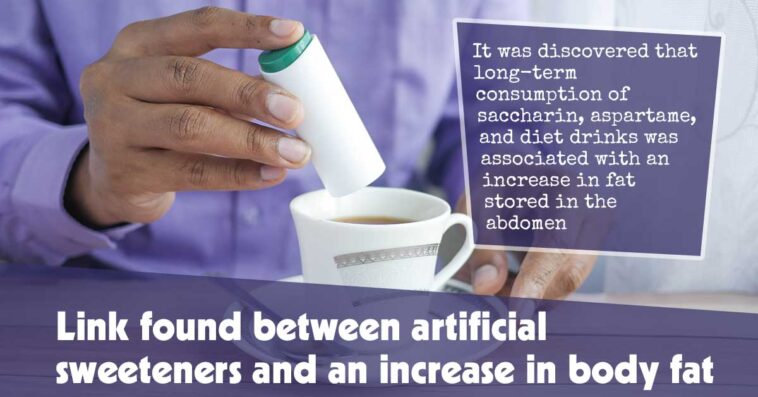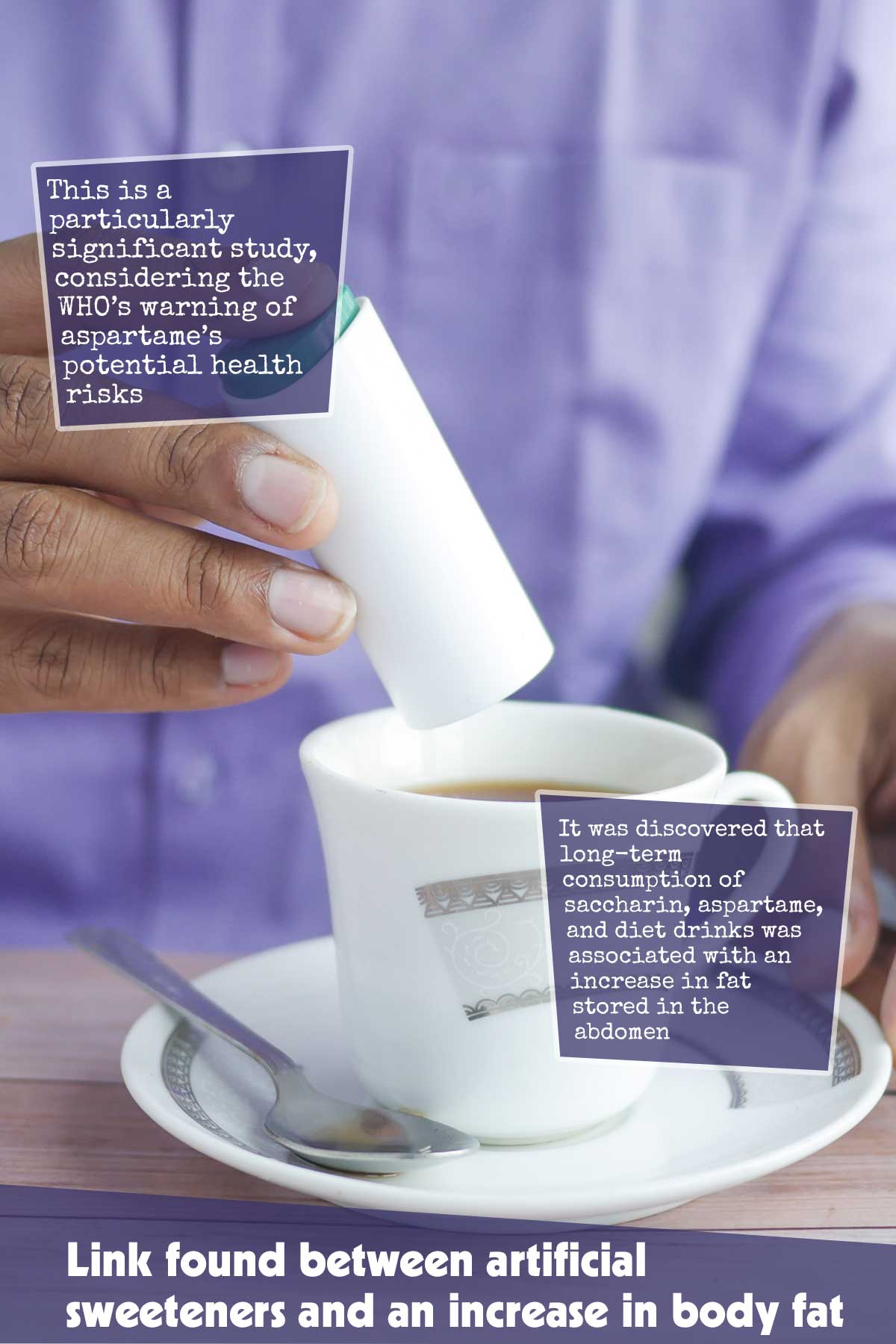Researchers examined the connection between dietary intake and risk factors for cardiovascular disease over 20 years. They looked at the typical dietary intake of the study participants, specifically focusing on non-nutritive sweeteners typically used in artificial sweeteners.1✅ JOURNAL REFERENCE
DOI: 10.1038/s41366-023-01336-y
It was discovered that long-term consumption of saccharin, aspartame, and diet drinks was associated with an increase in fat stored in the abdomen as well as fat within muscle. The study however observed no significant connection between sucralose and fat stored in the abdomen.
This study revealed that chronic, long-term consumption of individual and total artificial sweeteners is associated with greater adipose tissue volumes, typically known as body fat. This was observed even after other factors were accounted for, such as the quantity or the quality of an individual’s diet.
The study’s results raise questions regarding the ADA and the AHA’s recommendations that promote artificial sweeteners as a substitution for added sugars.
According to the study results, it’s recommended to consider alternative solutions, since long-term consumption of artificial sweeteners could have potential health implications.
This is a particularly significant study, considering the WHO’s warning of aspartame’s potential health risks. These results emphasize how important it is to find artificial sweetener alternatives for drinks and foods, particularly since these artificial sweeteners could have adverse health consequences.
The researchers underscore the necessity of more research for a better understanding of the association between artificial sweetener consumption and increased body fat. Additional studies are warranted to take a look at the fundamental mechanisms and get a better insight into how dietary habits impact metabolic health.




